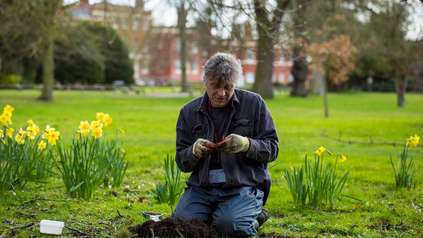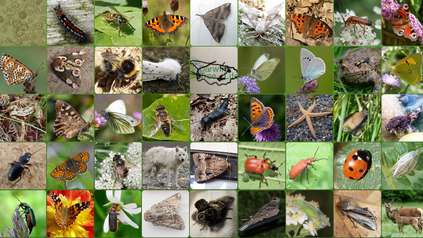British and Irish project at forefront of global effort to map genomes of all life on Earth
The Earth BioGenome Project (EBP), a global effort to map the genomes of all plants, animals, fungi and other microbial life on Earth, is entering a new phase as it moves from pilot projects to full scale production sequencing. This new phase is marked with a collection of papers published today in the Proceedings of the National Academies of Science, describing the goals, achievements to date and future plans of the largest coordinated effort in the history of biology.
One contribution focuses on the Darwin Tree of Life project (DToL), which aims to sequence genomes for around 70,000 species in Britain and Ireland. The Darwin project is at the forefront of this global effort, having submitted over 200 complete reference genomes to public databases in its first two years.
Without action to curb climate change and protect the health of global ecosystems, Earth is forecast to lose 50 per cent of its biodiversity by the end of this century. Creating a digital library of DNA sequences for all known eukaryotic life can help generate effective tools for preventing biodiversity loss and pathogen spread, monitoring and protecting ecosystems, and enhancing ecosystem services.
The EBP was launched in 2018 to meet this need. It aims to provide a complete DNA sequence catalogue of 1.8 million species of plants, animals, fungi and protists, covering the vast majority of species identified to date worldwide.
The goal for phase 1 of EBP, which runs until 2023, is to produce reference genomes representing around 9,400 taxonomic families. So far, affiliated projects1 have produced about 300 such reference genomes, with the majority of these coming from the Darwin Tree of Life project.
These genomes range from species such as the Eurasian water vole, which is at risk of disappearing from Britain and Ireland, to the kākāpō, a parrot endemic to New Zealand that is at risk of extinction2. Other key families in the pipeline include those providing invaluable ecosystem services, such as bees and earthworms.
“As climate change, globalization of trade, and the degradation of agricultural and natural habitats drive the sixth mass extinction, it has never been more important to catalogue and understand the biodiversity of our planet. Openly accessible understanding of species’ biology is a global good.”
Professor Mark Blaxter Director of the Tree of Life programme, Wellcome Sanger Institute
The first phase of DToL has been successful in laying the foundation to move from sequencing a handful of species to sequencing all species in Britain and Ireland. This has required close collaboration between diverse communities of researchers with expertise in biodiversity, sequencing, genomics, and analysis. The result is an end-to-end process that assures integrity, accuracy, and quality in the genomes produced, capable of scaling up to sequence many thousands more by 2030.
“Centuries of natural history research have created a uniquely rich knowledge base on the diversity and ecology of the plants, animal and fungi of Britain and Ireland. This is a perfect system for deploying massive scale genome sequencing of all species to give unprecedented and transformative insights into the nature of biodiversity and how it functions.”
Dr Michelle HartRoyal Botanic Garden Edinburgh
With the groundwork done on EBP and affiliated projects, 2022 will see activity ramp up considerably. EBP expects 3,000 genomes to be sequenced in the year ahead, with DToL aiming to sequence and publish at least 2,000 reference genomes by the end of 2022.
“The special feature on the EBP captures the essence and excitement of the largest-scale coordinated effort in the history of biology. From fundamental science to breakthrough applications across a wide range of pressing global problems, such as preventing biodiversity loss and adapting food crops to climate change, the EBP’s progress in sequencing eukaryotic life is humbling and inspiring. Achieving the ultimate goal of sequencing all eukaryotic life now seems within our reach.”
Harris Lewin chair of the EBP Working Group and Distinguished Professor of Evolution and Ecology at the University of California, Davis
More information
Publication:
The Darwin Tree of Life consortium. (2022). Sequence locally, think globally: The Darwin Tree of Life Project. Proceedings of the National Academies of Science. DOI: https://doi.org/10.1073/pnas.2115642118
Funding:
The Darwin Tree of Life project is funded by Wellcome.




